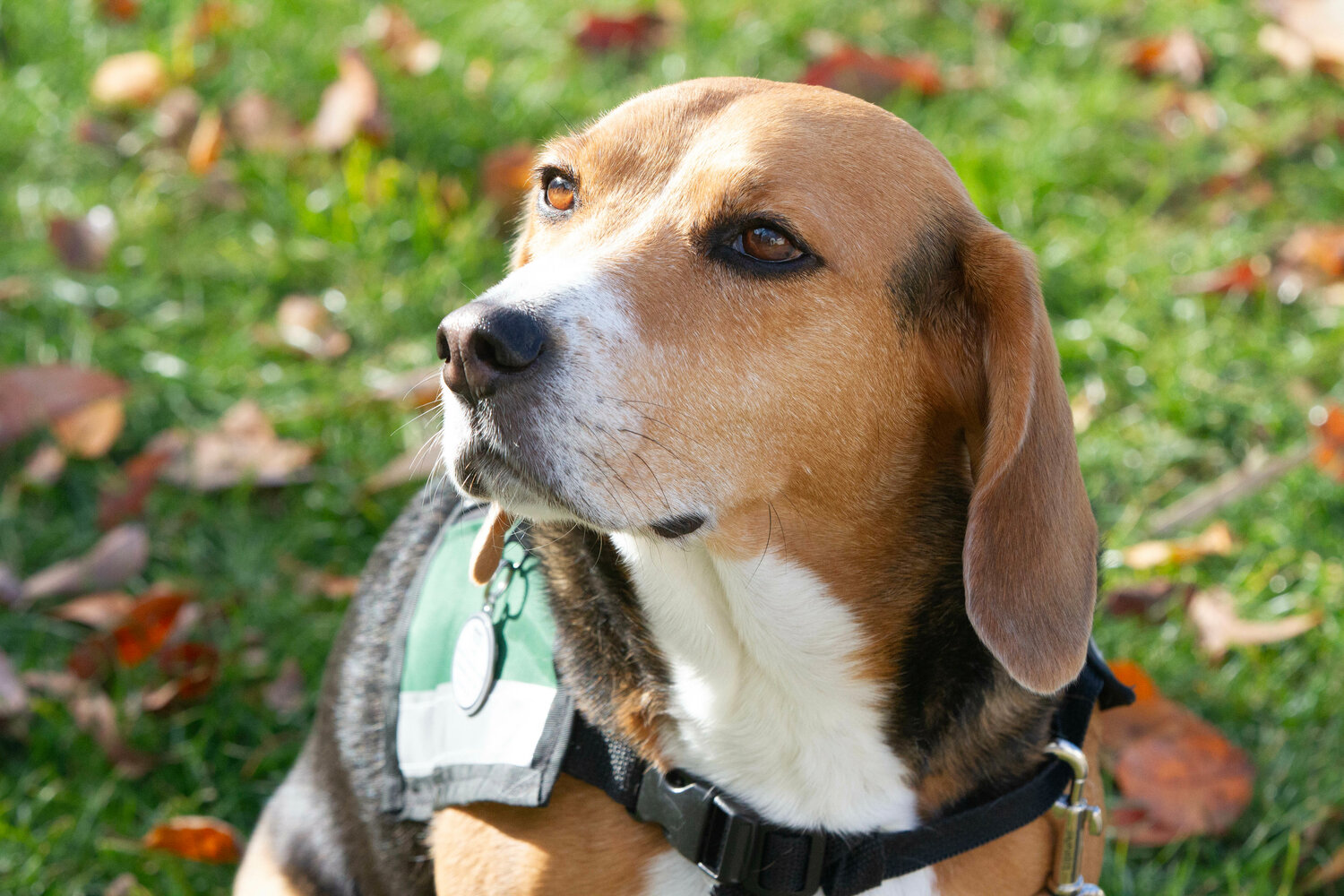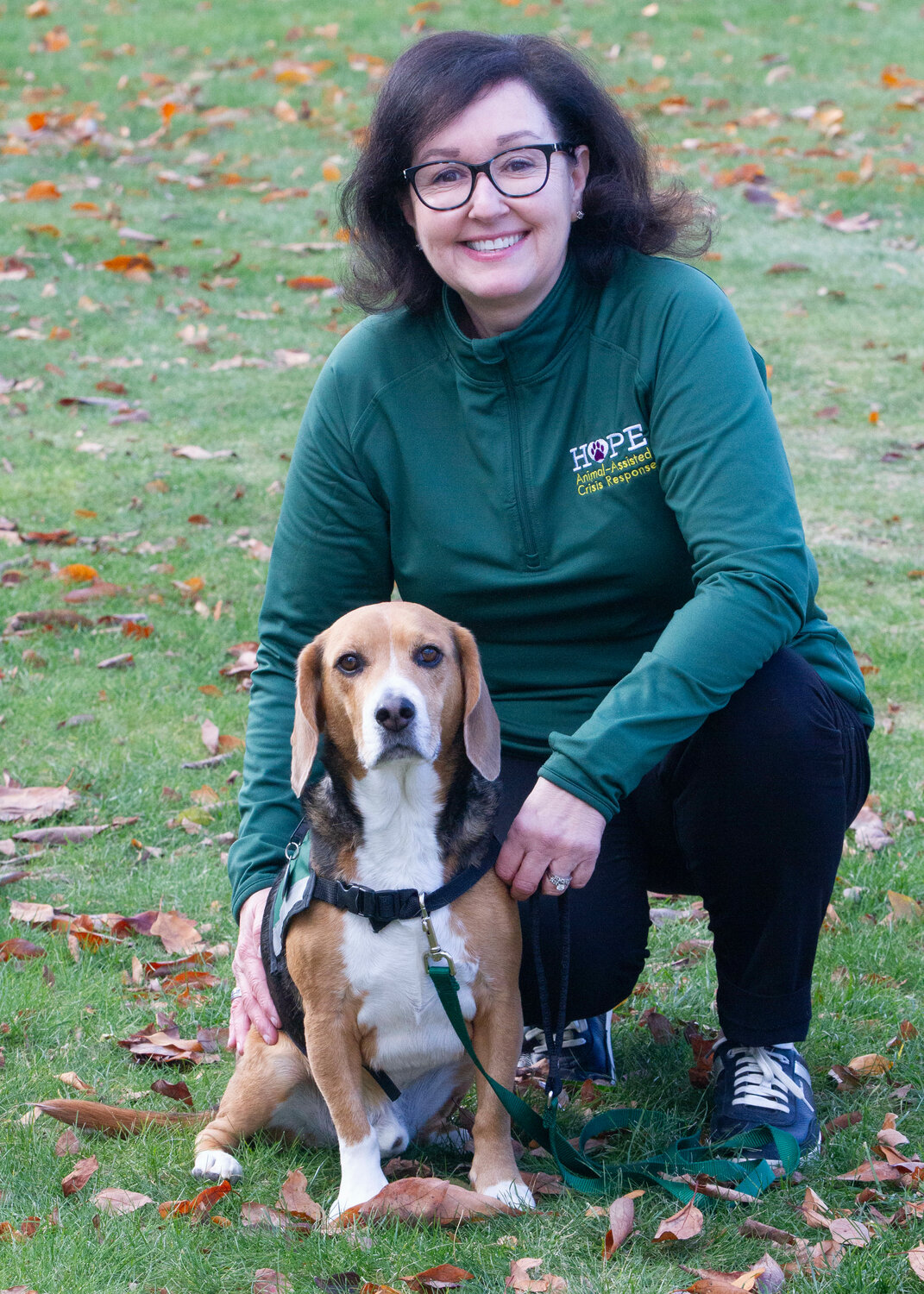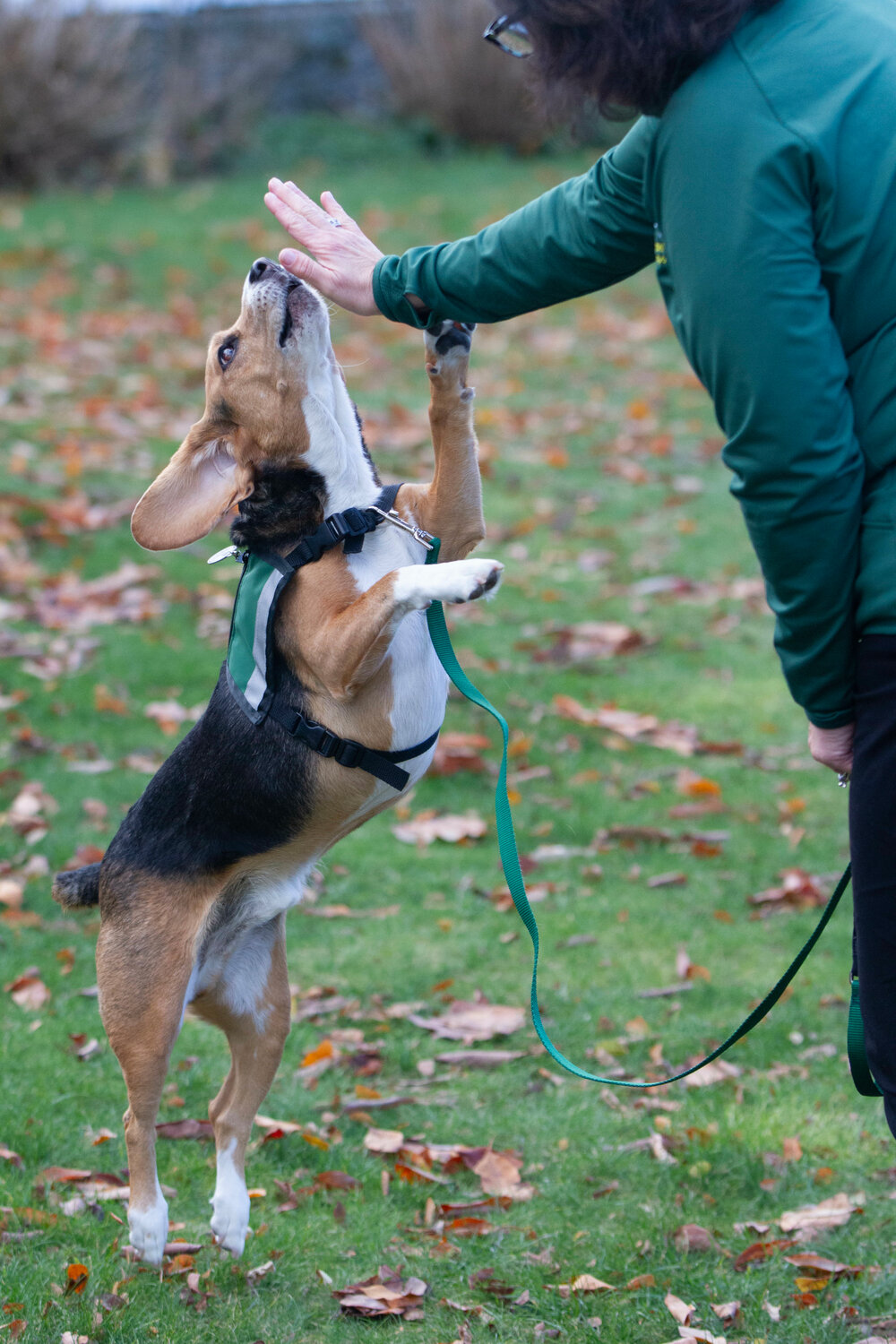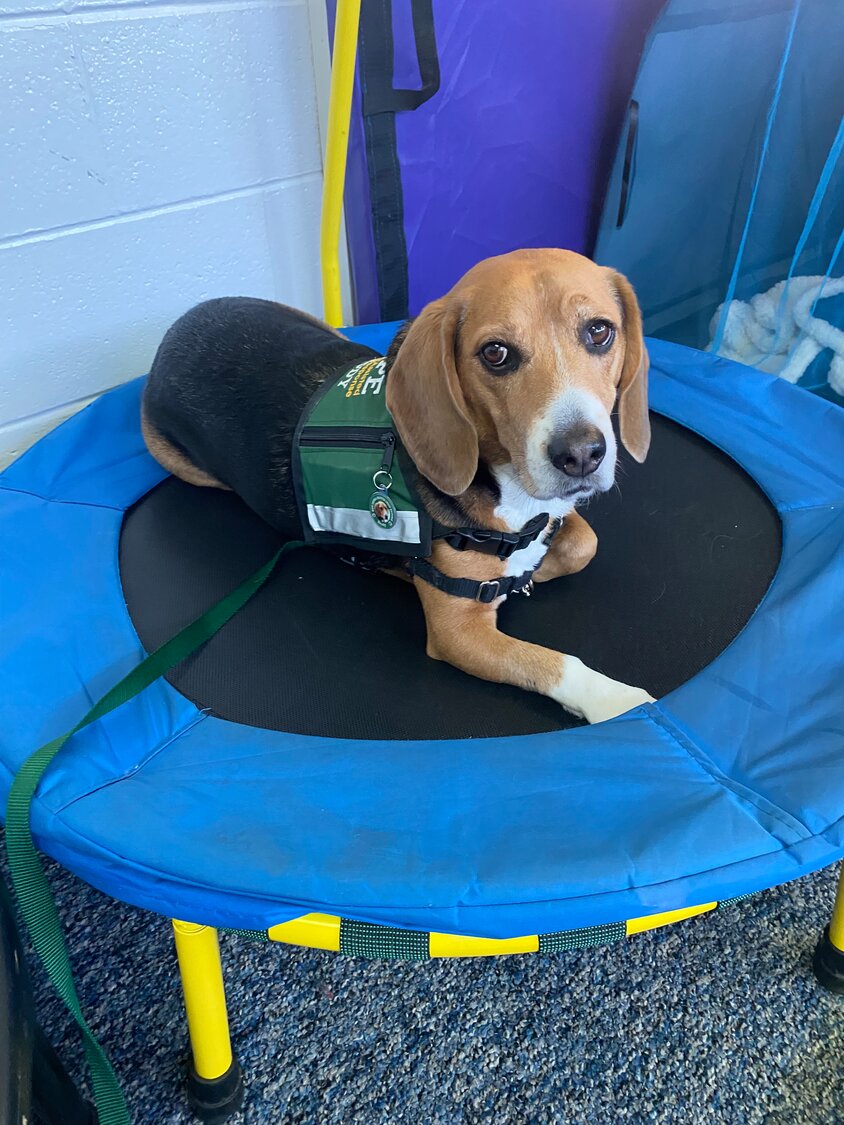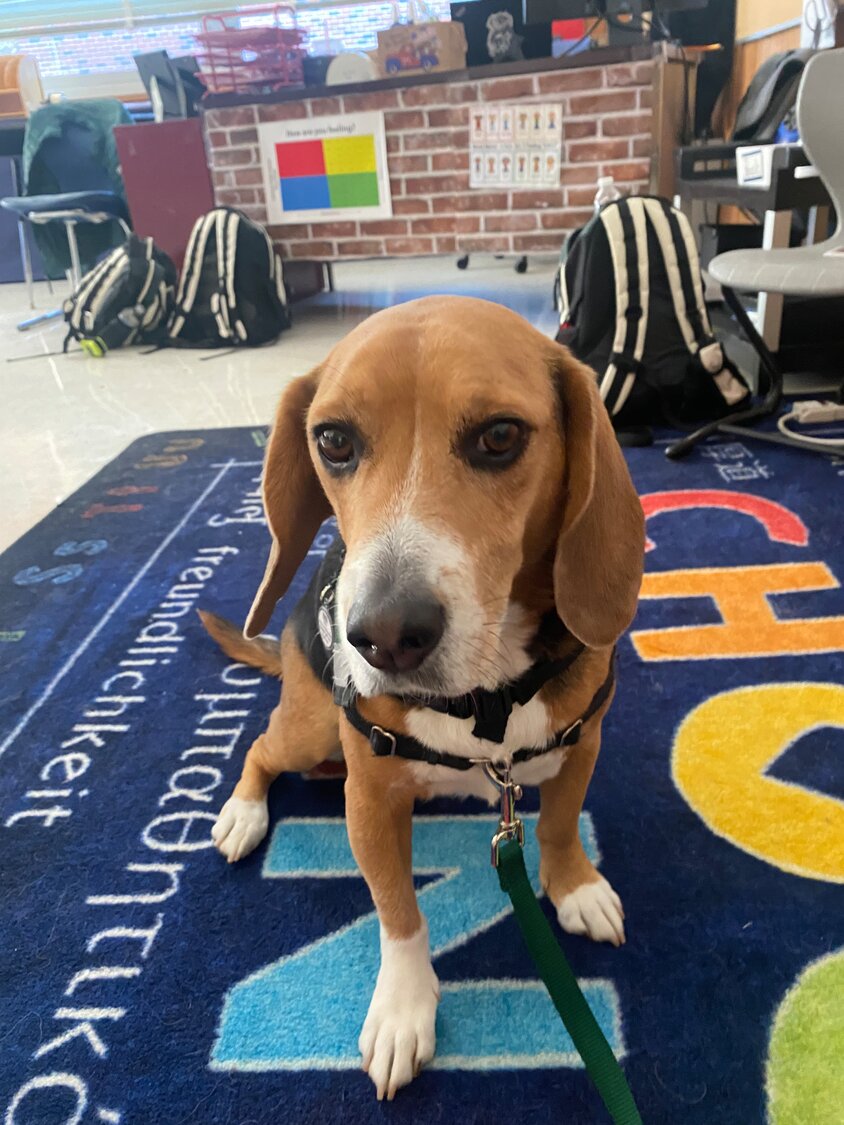Bristol therapy dog brings comfort to Lewiston
Among the many to respond to Lewiston, Maine in the aftermath of the Oct. 25 mass shooting that claimed 18 lives was a pair of Bristol residents; one of which who, by all reports, is a very good boy.
This item is available in full to subscribers.
Please log in to continue |
Register to post eventsIf you'd like to post an event to our calendar, you can create a free account by clicking here. Note that free accounts do not have access to our subscriber-only content. |
Day pass subscribers
Are you a day pass subscriber who needs to log in? Click here to continue.
Bristol therapy dog brings comfort to Lewiston
Among the many to respond to Lewiston, Maine in the aftermath of the Oct. 25 mass shooting that claimed 18 lives was a pair of Bristol residents; one of which who, by all reports, is a very good boy.
Brody, a mild-mannered Beagle with a certain way about him, was accompanied to the town by Diane Lambert who, according to Brody’s trading card, serves as his “partner and chauffeur”.
Diane and Brody were part of a team of therapy dogs from all over the east who responded to Lewiston in the days following the tragedy — once the suspect was apprehended and they were invited to deploy.
When is a good dog also fit to be a good therapy dog?
“They're generally more people-oriented than dog-oriented,” said Lambert, who got Brody as a rescue in 2016. “They have really good eye contact and they tolerate a lot of touch.”
Lambert got Brody when he was about a year old (he is about 8 now). He was from Kentucky originally and sent up to a shelter in Massachusetts, where she found him. “I had just recently lost my previous Beagle, who was also a therapy dog,” she said. “You can't make a therapy dog — they just have to do it. And he's been great.”
Brody has served as a Registered Therapy Dog for about six years, through Pet Partners, following his 2017 certification through Paws for People at the Tufts University Veterinary School.
“Every week we go to Ronald McDonald House in Providence, and twice a week we go to Bradley Hospital,” said Lambert. “It’s a higher-level type of therapy but with my background in healthcare, it has worked out well.”
They also work with libraries, colleges, corporate and veterans groups — wherever there is need, they are available to respond.
In addition to their work with Pet Partners, Diane and Brody were recruited to HOPE Animal Assisted Crisis Response (ACCR), a national organization of comfort dog teams that respond to crisis and disasters. HOPE ACCR teams consist of a dog and a handler, trained to respond to intense emotional and environmental situations, providing support to impacted individuals as well as first responders.
Before retirement, Lambert ran CT scans at the University of Massachusetts Medical Center in Worcester. She and her husband David relocated to Bristol several years ago when he was brought on to the RWU faculty, where he currently serves as Interim Dean of Justice Studies.
Lambert considers working with Brody her “retirement job” — but that doesn’t make it any less intense — especially when they are called to communities like Lewiston.
Rigorous testing and training
There is a formal testing process to becoming certified to serve as a Therapy Dog, and for some organizations, like Pet Partners, you need to re-certify every two years. (Pet Partners is particularly stringent because they serve hospitals.)
When Brody and Lambert were recruited to HOPE ACCR, they drove out to Erie, Pa. for an all-day evaluation. “They put him through the paces,” Lambert said. Ultimately they decided Brody (and Lambert) were good candidates and invited them to their four-day training workshop.
“They test them (the dogs) for loud noises; they took us to the airport to teach us how to get through security and TSA and how to board a plane with your dogs because when we're on deployment the dogs travel with us on the plane. And we took lots of classes in psychology and trauma, so you know how to recognize stress in ourselves, and how to recognize stress in our dogs,” said Lambert. “Some of these situations are stressful and you need to know when you need a break or when your dog needs a break.”
The deployment
HOPE ACCR does not self-deploy. “We wait for an invitation, whether it's from FEMA, the Red Cross, or in the case of Lewiston, the local school department and Central Maine Medical,” said Lambert.
With Lewiston, HOPE had to delay their deployment until the shooter was located and the crisis contained, but following that, the first set of teams left on the night of Oct. 28 and were at the schools at 7:30 the next morning with with several sets of teams.
From there, the dogs’ job was to bring their calm presence to classrooms, community vigils, memorial sites, and bedsides. Over the course of about 10 days, 21 people with 18 dogs fanned out across the impacted communities of Lewiston, Winthrop, and Auburn. “Once you're there, the word gets out and more requests start coming in,” said Lambert. “We had over 18,000 contacts with people.”
“In a typical day, we would be at an elementary school and Brody would see every single class. The students would come in groups of fives or six and just sit with the dogs and look at the dogs’ trading cards and talk about things.”
HOPE ACCR responded with teams from Pennsylvania, New York, Kentucky, Maryland, Virginia, and Texas. Brody and Lambert were the only team from New England — currently there are only three in the region — and there are only 264 certified dogs in total throughout the United States. What’s more, the other two teams here in New England have older dogs who are starting to age out of the program.
While Lambert did not want to share specific details of interactions out of respect for the privacy of the impacted families, Brody worked with several children and adults who had suffered loss of immediate family members, and others who were present at the shooting; the pain of bearing witness to their tragedy is visible on her face as she talked about the time she and Brody spent in Lewiston. As one student said to Lambert, “everyone here is only two handshakes away from a victim.”
“The people of Lewiston were so kind, and so strong, and so grateful,” said Lambert. “It just took their minds off it, if only for a moment.”
More dogs are needed
Emphatically, yes, HOPE ACCR welcomes applicants interested in joining their network. The dogs have to be certified therapy dogs with at least one year of therapy visits behind them in order to be evaluated to serve on an animal-assisted crisis response team. For more information, or to donate to help defray the costs of training, certification, and deployment, please visit www.HOPEACCR.org.

